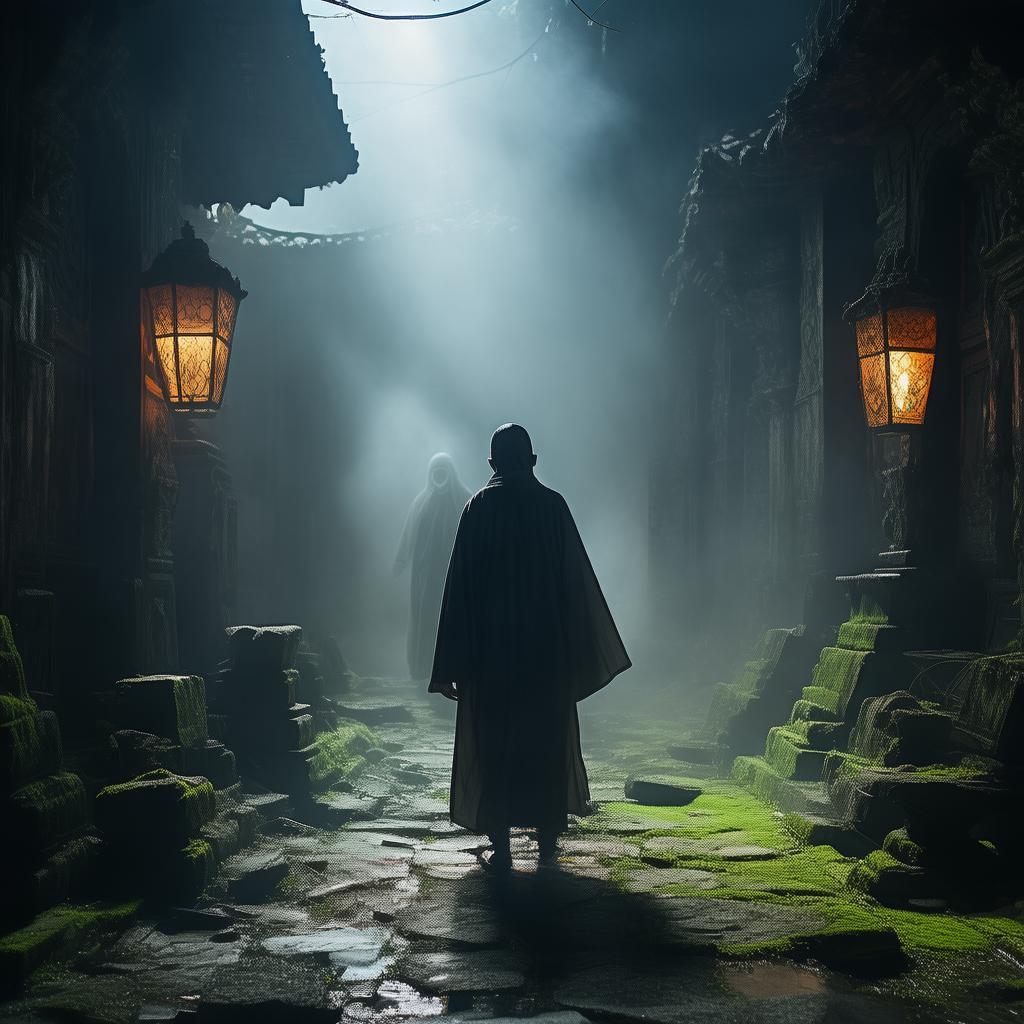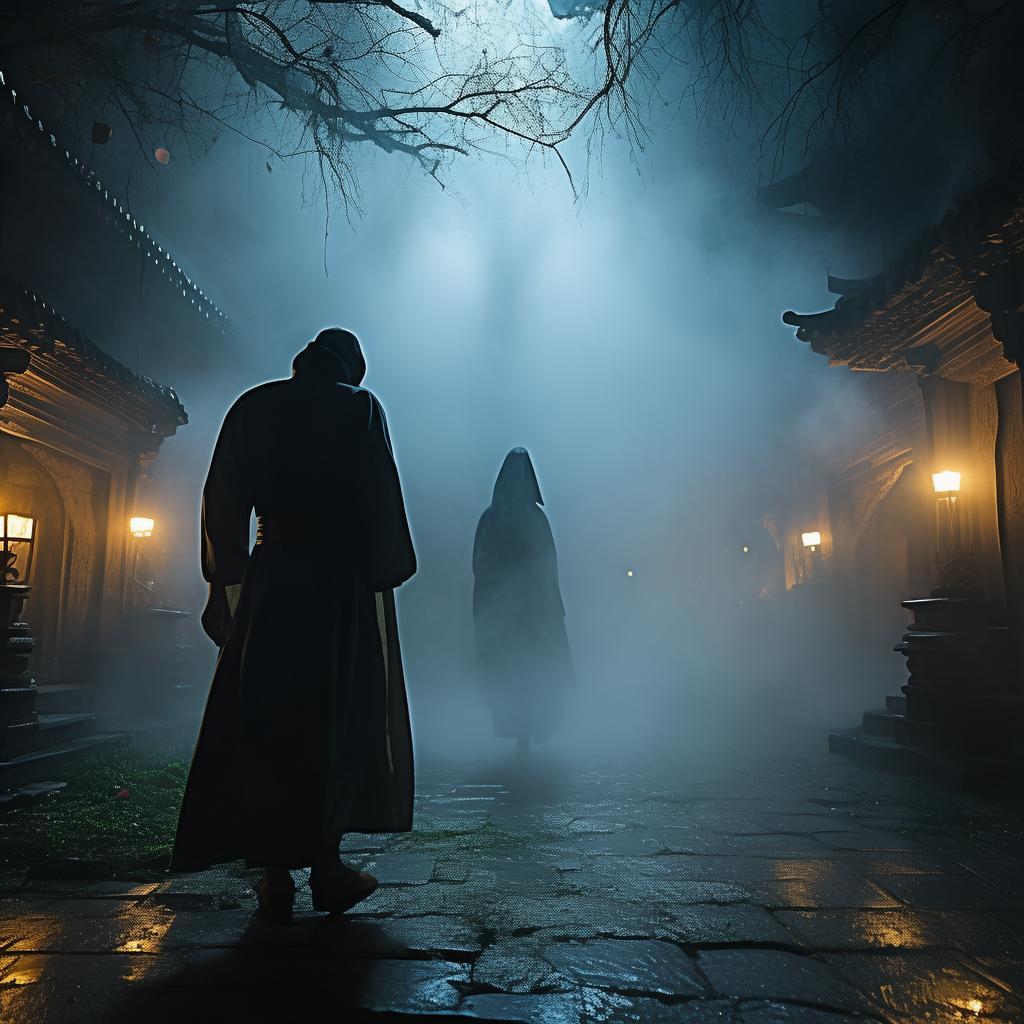Whispers from the Haunted Riverbank
The moon hung low in the sky, casting an ethereal glow over the city of Chongqing. The river, a dark and flowing serpentine, hummed with the secrets of ages past. It was there, at the edge of the riverbank, that the whispers began—a haunting melody, both beautiful and unsettling, that seemed to emanate from the very stones below.
The melody belonged to Li Wei, a young musicologist from Beijing, who had come to Chongqing on a quest to uncover the origins of a song that had haunted her since childhood. Her mother had often hummed it to her, a lullaby that spoke of loss and longing, of a woman's sorrow that echoed through the ages. The song was known as "The Chongqing Ghostsong," a melody said to be woven from the very fabric of the city's history, tied to its most mysterious and tragic moments.
Li had always believed the song to be a mere bedtime tale, but her mother's death left her with a burning curiosity. She sought answers in the city's archives, but the song remained shrouded in mystery. It was only when she wandered along the riverbank, her mind lost in thought, that the melody reached out to her, calling her name through the wind.
One evening, as the moon rose higher, Li found herself drawn to the riverbank. She had brought with her a recording device, hoping to capture the haunting melody. As she stood there, the whispers grew louder, and she felt an inexplicable pull toward the water's edge. She took a step forward, and the next thing she knew, she had stumbled into the river, her feet caught in the reeds that grew there.
Li awoke to find herself sitting on the riverbank, her wet hair sticking to her face. The melody had faded, but it left an eerie echo in her mind. She looked around and noticed a peculiar pattern etched into the stones—a map of sorts, with symbols that seemed to point toward the river's depths.

Intrigued, Li followed the map, descending into the darkness beneath the river's surface. The path was treacherous, with narrow passages and dark shadows. She pushed on, her heart pounding in her chest, the whispers of the song guiding her way.
After what felt like hours, Li stumbled upon a cavernous space, lit by flickering torches. In the center of the cavern stood a pedestal, upon which rested a small, ornate box. The whispers grew louder as she approached, and she felt a strange sense of urgency.
Opening the box, Li was surprised to find a journal, its pages filled with handwritten notes. The entries were dated back to the early 20th century, a time of great turmoil and upheaval in Chongqing. The writer, a woman named Mei, described a love affair that had ended in tragedy. Mei's husband had been executed during the Sino-Japanese War, and Mei had vowed to sing her sorrow until the day she died.
Li realized that the melody she had been seeking was indeed connected to Mei's life. The haunting song was Mei's lullaby for her child, who had never been born. It was a song of unrequited love and heartache, a melody that had echoed through the years, reaching out to those who were brave enough to listen.
As Li read through the journal, the whispers grew stronger. She felt as though she was being watched, as though Mei's spirit was nearby. She looked up to see the silhouette of a woman standing at the edge of the cavern, her eyes filled with sorrow and longing.
Li knew then that Mei had not died, but rather, she had become part of the river's history, her soul trapped within the melody. It was Mei who had been guiding Li, leading her to the truth that had been hidden beneath the river's surface for so many years.
With a tear in her eye, Li closed the journal and returned to the riverbank. The whispers had stopped, but she knew that Mei's song would continue to resonate through the ages, a haunting melody that would never truly fade away.
In the days that followed, Li traveled back to Beijing, the song still echoing in her mind. She decided to compose a new melody, one that would honor Mei's memory and bring her story to light. The Chongqing Ghostsong had become a part of her, a haunting melody that had not only connected her to the past but also to the eternal essence of human sorrow.
And so, Li Wei's life took a turn she never could have anticipated. The haunting melody that had once been a mere curiosity became her mission, a testament to the power of music to transcend time and bring peace to the lost souls that lingered in the shadows of history.
✨ Original Statement ✨
All articles published on this website (including but not limited to text, images, videos, and other content) are original or authorized for reposting and are protected by relevant laws. Without the explicit written permission of this website, no individual or organization may copy, modify, repost, or use the content for commercial purposes.
If you need to quote or cooperate, please contact this site for authorization. We reserve the right to pursue legal responsibility for any unauthorized use.
Hereby declared.









